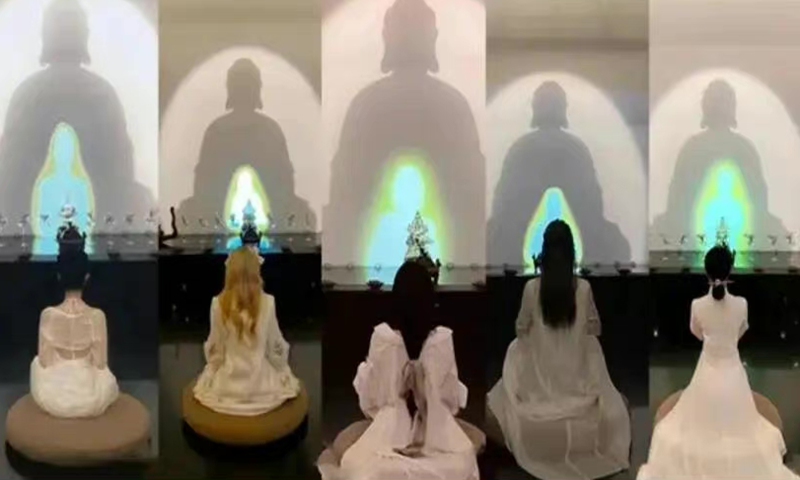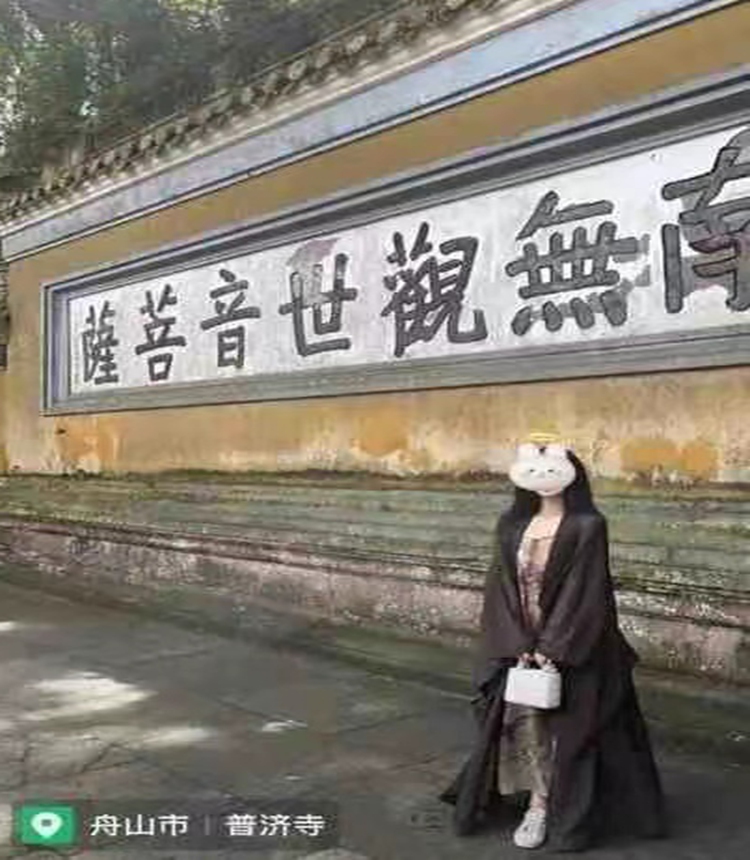
“Foyuan” . Photo: Sina Weibo
Temples are generally a source of tranquility and soul-searching. But in a recent trend, flashily dressed women who have been dubbed “Foyuan” by Chinese netizens have used the temples as a way to boost their fame and to make money.
Douyin, the Chinese version of Tiktok, on Thursday punished 48 Foyuan accounts and banned seven of them permanently. Similarly, Xiaohongshu, a lifestyle platform has deleted 70 articles related to Foyuan, and suspended three accounts.
The moves came after Workers’ Daily, a newspaper affiliated with the All-China Federation of Trade Unions, published an article on Tuesday, titled “A fox’s tail cannot be hidden by wearing Kasaya (the traditional robes worn by Buddhist monks).” CCTV.com also published an article on Thursday, saying these women have “boundless avarice.”
The Workers’ Daily article used a harsh tone to criticize Foyuan, saying that they seemingly hold themselves aloof from the world, but actually are full of desires. It also said it was “sinful” for them to use temples in such a way.
So what have Foyuan done to deserve such criticism?
Foyuan means “a lady who pays homage to Buddha.” Yet the word is used by Chinese netizens to generalize a group of young, flashily dressed women who have luxury bags such as Louis Vuitton and wear revealing outfits, and who go to temples to practice calligraphy and present cultivating the heart as a daily lifestyle.
Most importantly, they post their photos online to make sure everybody knows they are young, pretty, rich and devoted to Buddha.
Some even use hyaluronic acid on their earlobes to make their ears plump and more like images of Buddha.
Routinely, after they garner enough clicks, likes and followers on social platforms, they start to sell things. As the Workers’ Daily article said, the Foyuan post all sorts of shopping links, selling cosmetics, clothes and other items.
One of the Foyuan, under the name of “yubuxiangguai,” was found selling a lock charm bracelet for more than 100 yuan ($15.7), which costs only 20 yuan on Taobao, China’s biggest online shopping platform.

“Foyuan” . Photo: Sina Weibo
As some netizens pointed out, anyone can choose to show off their lifestyle, but the Foyuan have tainted the solemnity of religious places, and also broken the law.
“It’s not only about attracting eyes. It’s about values, and faith. You can choose not to believe in any religion. But one has to have basic respect for religion, and shouldn’t insult it,’ said one Sina Weibo user.
China’s Regulations for Religious Affairs bans anyone from conducting commercial promotion under the name of religion.
Recently, China has rolled out a campaign to “clean up” the internet, including a crackdown on crimes and rectifying “uncivilized behavior” of some accounts with a large number of followers.
Now, when searching for “Foyuan” on Douyin, most of the videos have vanished.
Global Times
